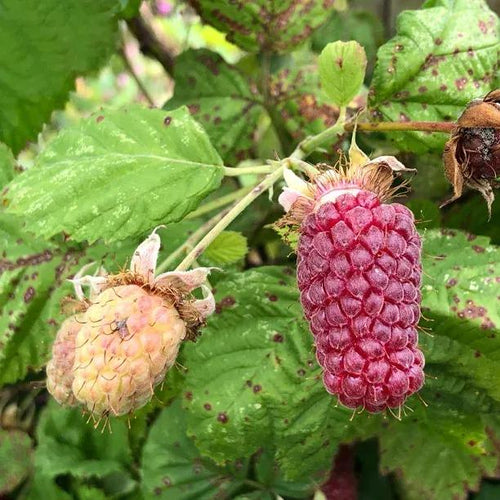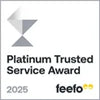
Select form
Select a product
Single Plants
Select Size
1-2 £8.99
3+ £7.99
 Platinum Trusted Service Award
Platinum Trusted Service Award Delivered across the UK
Delivered across the UK Which Best Plant Supplier 2025
Which Best Plant Supplier 2025
About Loganberry Bushes
Loganberry Bushes
The loganberry makes a great addition to any soft fruit collection. The plants are big, vigorous, hardy and healthy.
Its juicy, acidic fruit aren't the most popular for eating fresh (it depends on your taste buds), but that same quality makes them outstanding for use in cooking, jam making, stewing and even brewing wine.
Harvest the fruit when they turn deep red-purple & do it on a dry day.
Loganberry plants will stay in their prime for 15+ years, after which they may begin to decline and crop less.
Browse our variety of hybrid berry plants or see our full range of soft fruit bushes.
Features
- Thornless.
- Self-fertile.
- Big, vigorous plants.
- Very big berries.
- Acidic flavour, best for cooking
- Crop size is 7-8kg per bush.
- Crops for about 2 months from mid July to the end of August.
- Good for freezing.
Growing Loganberry Plants:
The canes can snap in strong winds, so it's important to tie them down well to stable wires.
Growing Loganberries is exactly the same as growing blackberries. A rich soil is important - improve with plenty of manure & mulch each year for best results.
Read our detailed information on how to grow blackberries & Loganberries here.
History & Trivia
Bred in 1883 by Judge James Logan of Santa Cruz, California and brought over here in 1897. The parents of the Loganberry are thought to be a European Raspberry called 'Red Antwerp' and a Blackberry called 'Aughinbaugh'.
It was used to breed the Tayberry (by crossing with more raspberries) and the Boysenberry (crossed with raspberries & blackberries).
Loganberries are grown commercially in the US for juice, but they have not caught on so well over here, despite being grown for the Royal Navy as a vitamin C source at the start of the 20th Century. At that time, practically all British loganberries came from Leigh Sinton, near Malvern.
Like wild blackberries, the fruit ripen over a long period, with bunches of fully ripe fruit next to totally unripe ones.
The LY654 clone that we grow is almost thornless, and tastes the same as the traditional, thorny loganberry.
Standard practice is to deliver raspberry canes with last year's growth cut back to 45-60 cm.
Therefore, summer fruiting raspberries will bear few, if any, berries in the Summer following planting. Their first full fruiting season will be in the year after.













 Secure, One-Tap Checkout
Secure, One-Tap Checkout
 Hand Picked, Delivered to Your Door!
Hand Picked, Delivered to Your Door! 1 Year Bareroot Guarantee
1 Year Bareroot Guarantee

